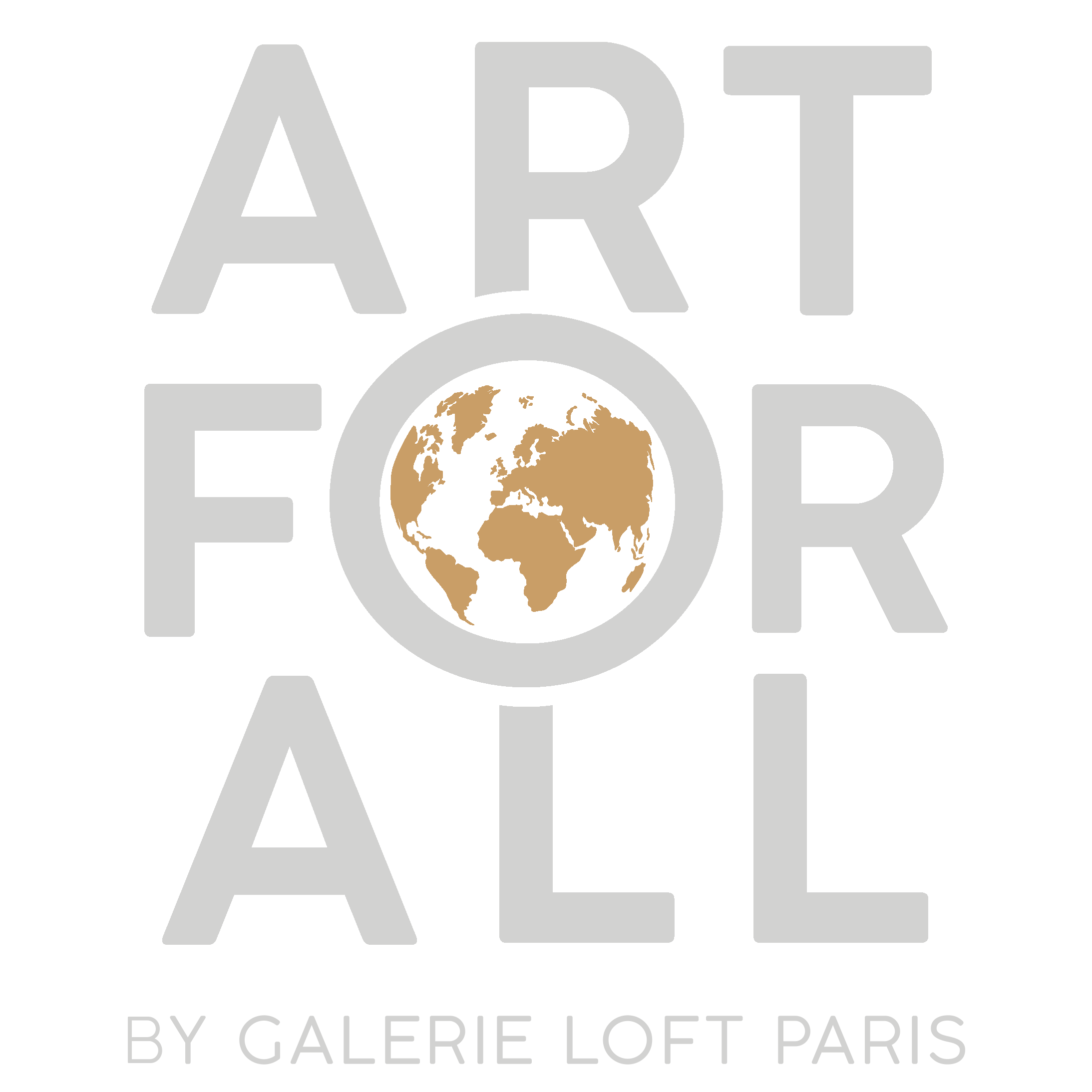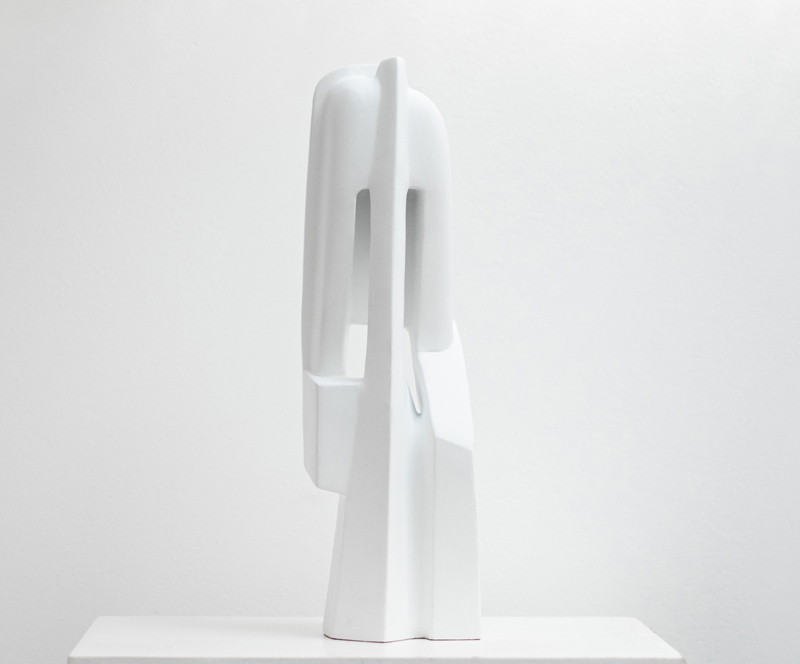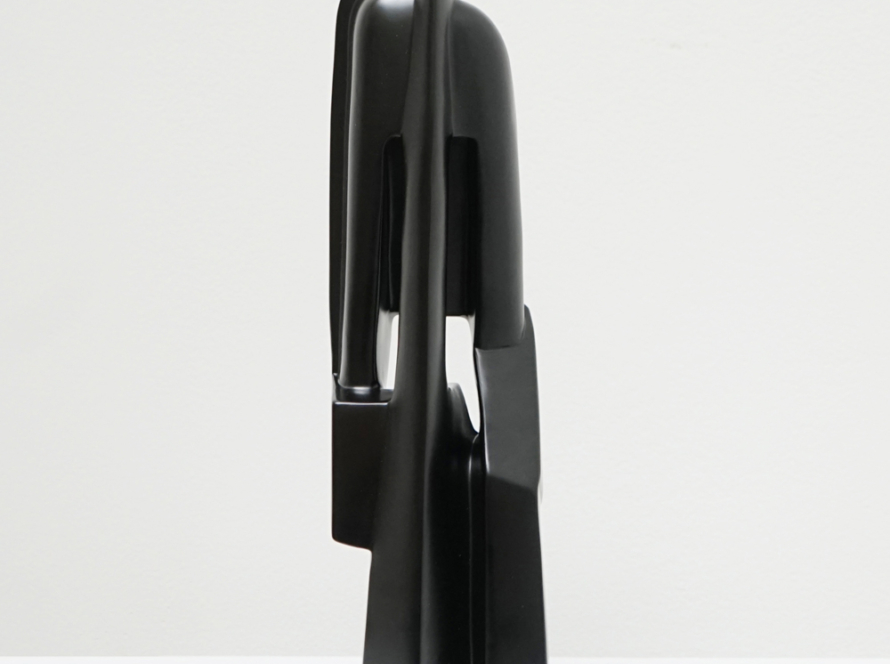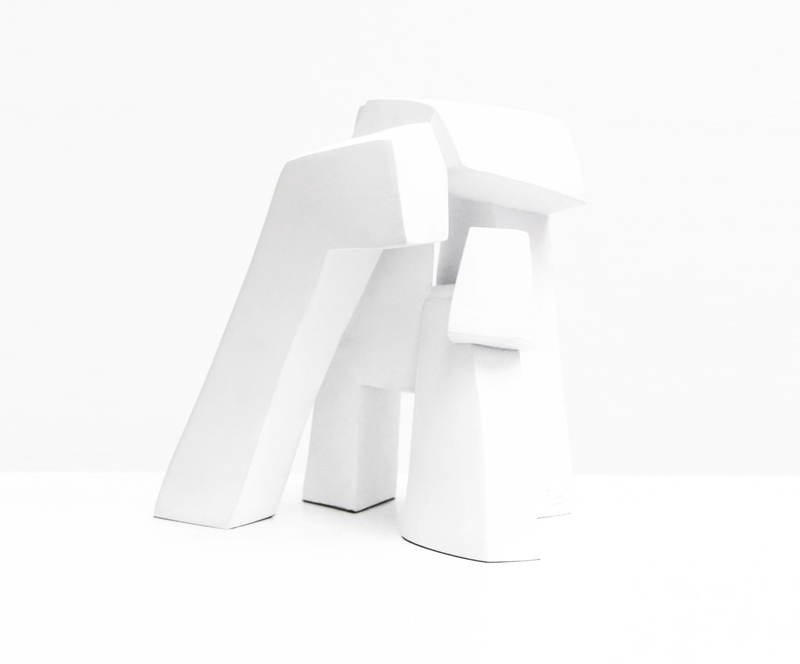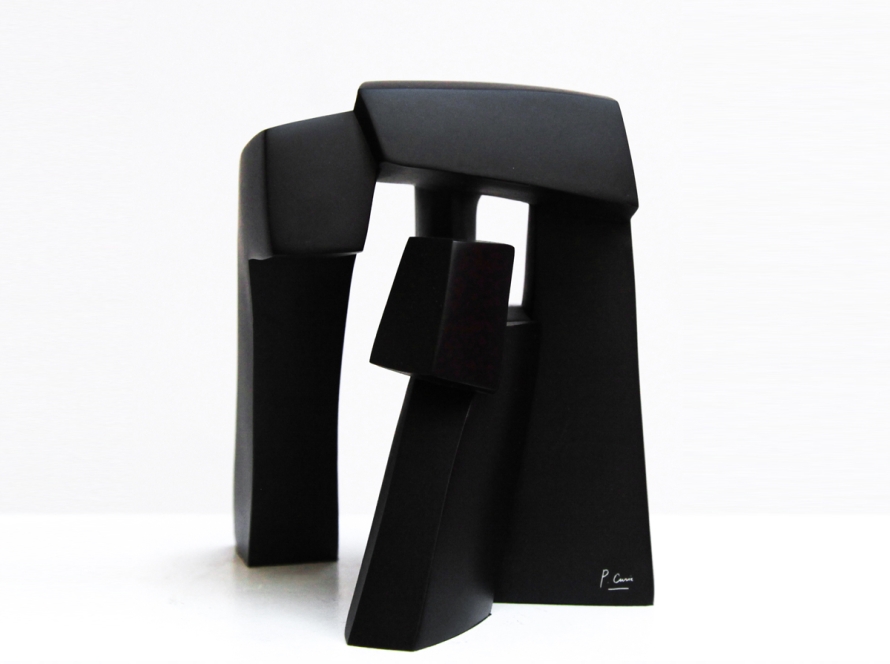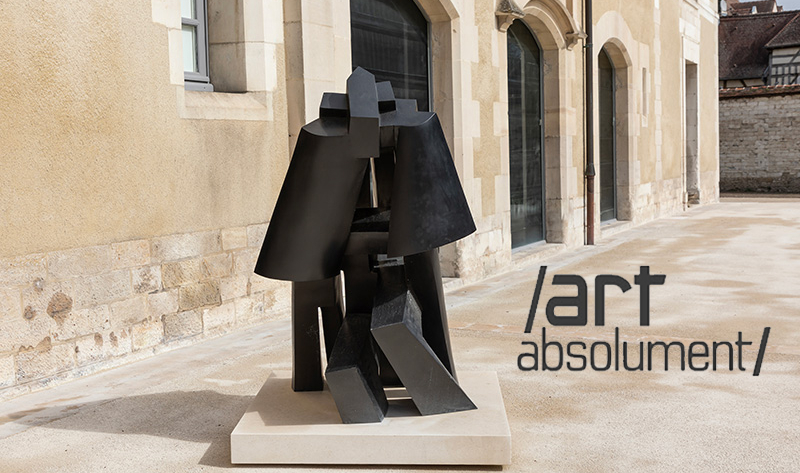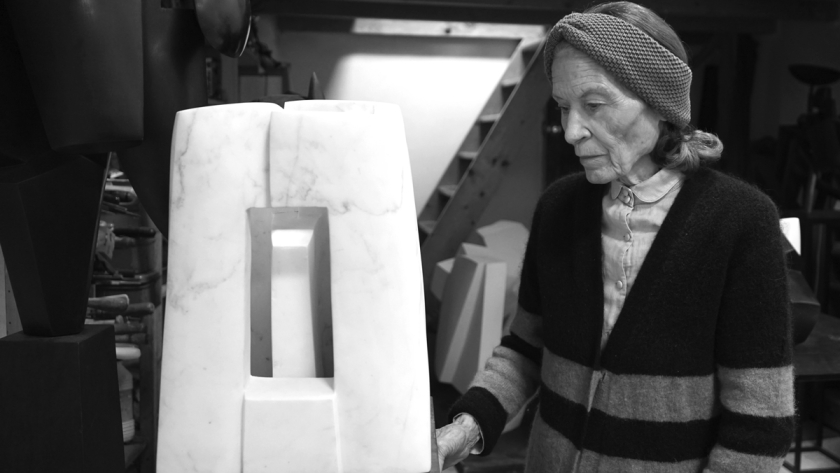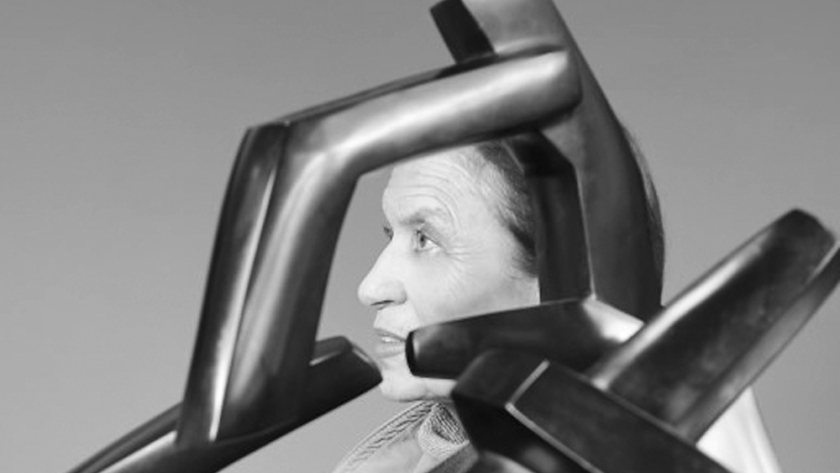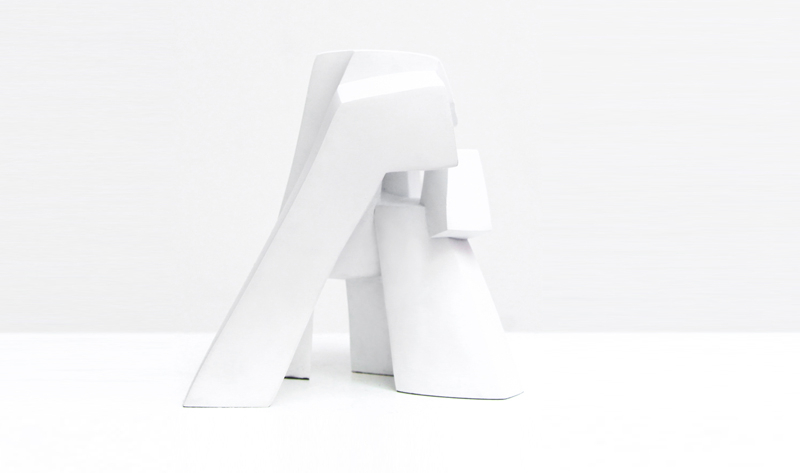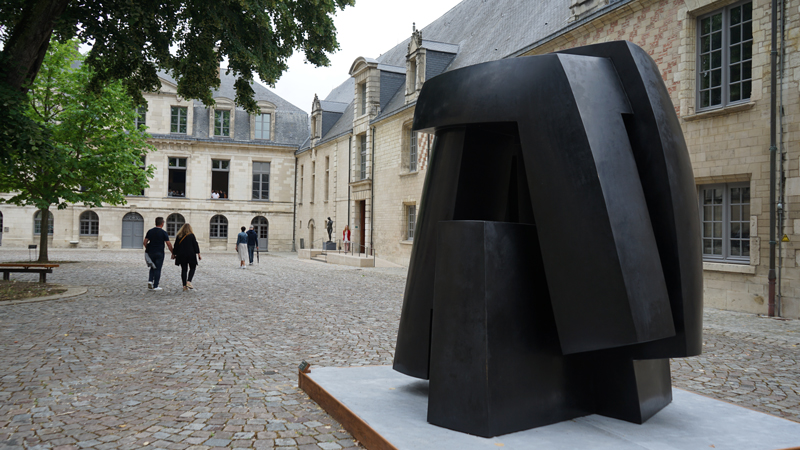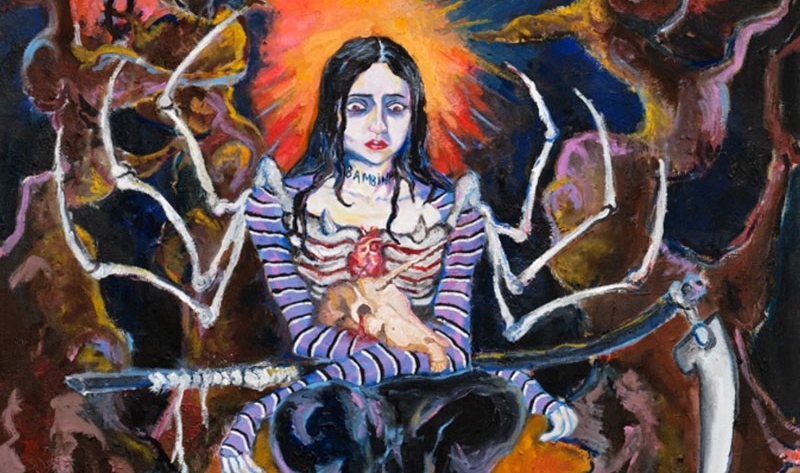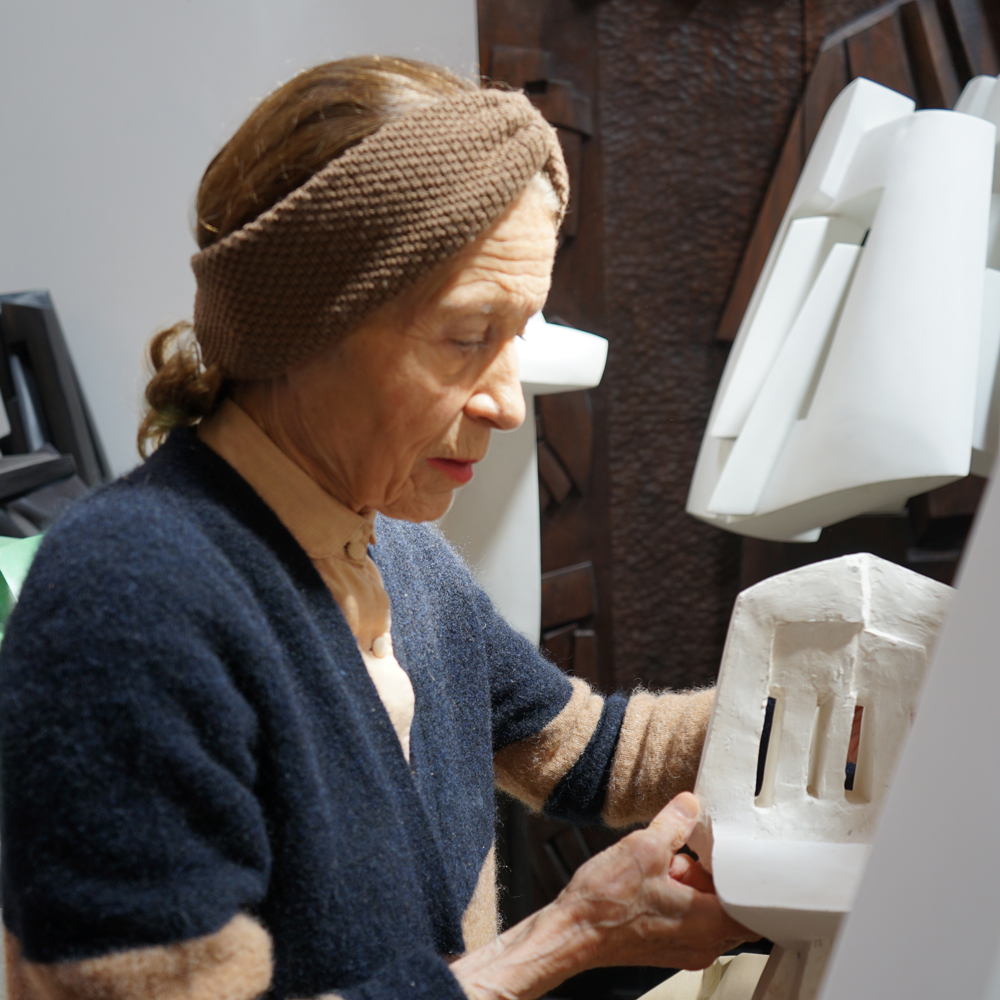
When I discovered sculpture I found a kind of force that pushed me to define a form that approaches a "mother cabin", both architecture and character. I don't do abstract sculpture. I have always looked for the human in sculpture
Parvine Curie
Parvine Curie was born in Nancy in 1936, of Franco-Iranian origin. After obtaining her baccalaureate she began linguistic studies and left to discover England, Austria, Spain and Italy. In 1957, she discovered Catalan art and decided to settle in Barcelona where her first sculptures were born. She lives with the Catalan sculptor Marcel Marti with whom she had a son, David Marti in 1959. In 1960, she presented her first solo exhibition at the French Institute of Barcelona. In 1965 her work was stylized and constructed, notably through the practice of iron, bronze, cut aluminum and embossed metal in the following year. The “Gales” Fashion store in Barcelona asks her to decorate their windows for Christmas: Fantastic birds, Angels-sirens.

In May 1968 she made her first Mère (Mother), which she presented at Suzanne de Cönninck’s at the Center for the Integration of the Arts. She left Spain in 1969 to settle in Paris. In 1970, Parvine Curie occupied a studio in the Cité internationale des arts in Paris. At the Salon de la Jeune Sculpture in the Luxembourg Gardens, she presents Première Mère, an assembly of glued planks painted in black and enhanced with brass. This work was noticed by the sculptor François Stahly, who recognized in a great affinity with his work at the time. Stahly and his wife Claude invite her to work with them at the collective workshop in Crestet, in the Vaucluse and then in Meudon. This is where Parvine Curie learns the basics of the trade, wood and stone carving. Stahly, for his part, recognizes Parvine’s structuring influence on his work.
In 1973, after the death of Claude Stahly, Parvine Curie moved for six months with François Stahly at Albany in the United States. The landscapes of the rocky mountains and the discovery of pre-Columbian civilizations strongly influence her work. She travels to Mexico, Guatemala, Morocco, India, Egypt, Yugoslavia and Greece.
After her divorce with Marcel Marti, she married Stahly and back in France, she received her first public commissions (1st placed at the Pierre-Bégon college in Blois. The work, Mère Anatolica, placed in the courtyard of the Pierre-de-Coubertin, in Chevreuse where Pierre Huyghe studied in 1975. This hieratic sculpture will partly be at the origin of the sculptor’s career). In 1976 the Monnaie de Paris published small reliefs, sculptures and her jewelry, in limited editions.
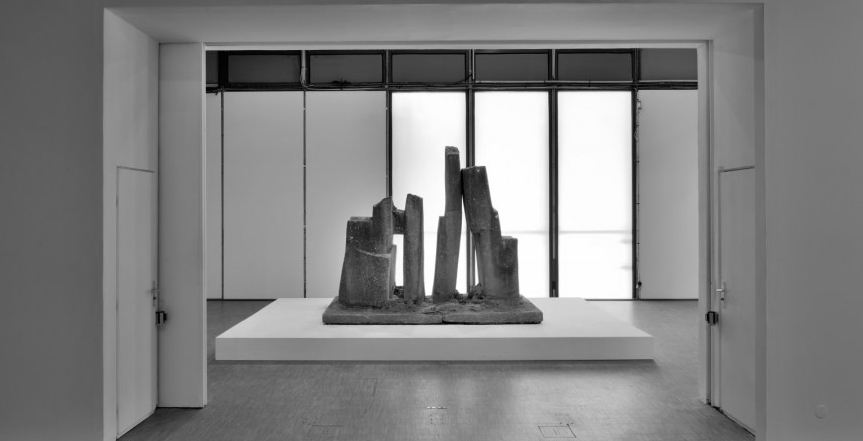
In 1979, she received the Bourdelle Prize (jury made up of the sculptors Penalba, Waldberg, Hajdu, Etienne-Martin and Couturier) and, in 1980, a two-meter version of the Mother-Cathedral work, in exotic wood, was purchased by the city of Paris for the inauguration of the Museum of Contemporary Outdoor Sculpture, quai Saint-Bernard.
In 1984 she presented a retrospective at the Museum of Modern Art in Troyes and the city of Meudon commissioned a Monument to the victims of Nazi barbarism, made in Carrara marble. In 1988, the Élysée bought her the sculpture Mère-Couloirs in aluminum, a presidential gift to german chancellor Helmut Kohl and two years later a non-commercial edition of twenty-five small pyramids, which President Mitterand would offer to heads of state during the Franco-African summit in La Baule. She presents a retrospective of her works at the Jean Arp Foundation (Clamart, Hauts-de-Seine), at the Jacques-Prévert Center, (Aulnay-sous-Bois, Seine-Saint-Denis) in 1994, at the Orangerie of the castle of Meudon (Hauts-de-Seine) the following year and the Gothic monastery of Pebralbes and the Maeght gallery in Barcelona in 1999.
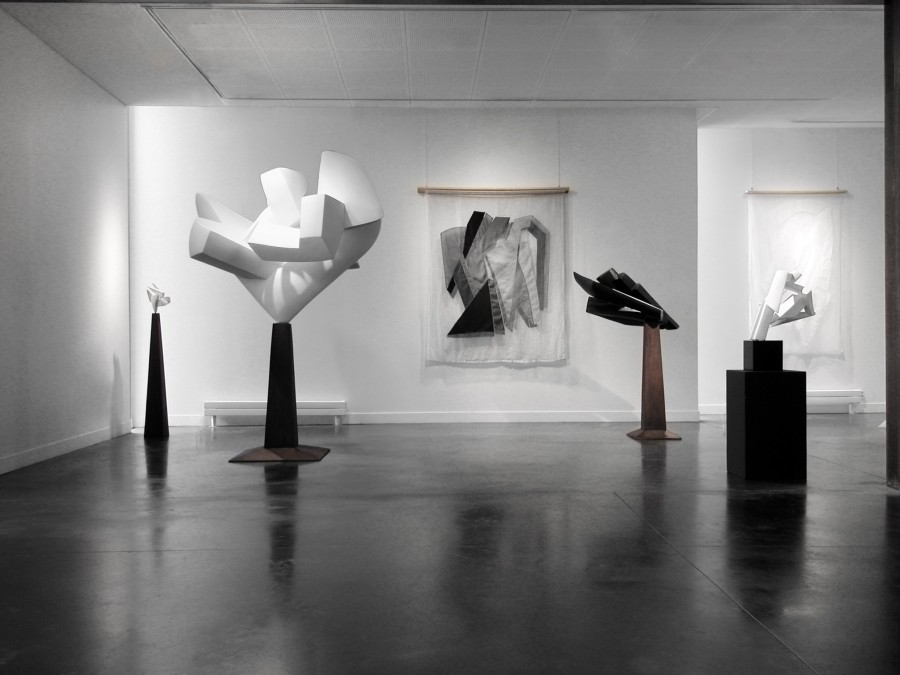
In 2000 she exhibited her works alongside of François Stahly at the French Institute in Barcelona (Spain). In 2003 she exhibited at the Art Center of Meudon and devoted her time to François Stahly whose health deteriorates who died in 2006. The following year it was her son, David Marti, painter and poet who extinguished in turn. She organized a Retrospective for him presented at the Cadaqués museum in 2009.
In 2012 she presented a new retrospective at the Collegiate Church of St Martin in Angers with musical interventions as well as poetic itineraries on texts and poems by David Marti. The following year in 2013, she was decorated Chevalier des Arts et des Lettres (elevated to the rank of Officer in 2021) and participated in the exhibition “Les Femmes Sculpteurs (Women Sculptors)” at the Villa Datris (Isle-sur-Sorgue). In 2015, she participated in the exhibition “Dessine-moi une collection” at the Museum of Modern Art in Troyes and created the Parvine Curie – David Marti donation fund.
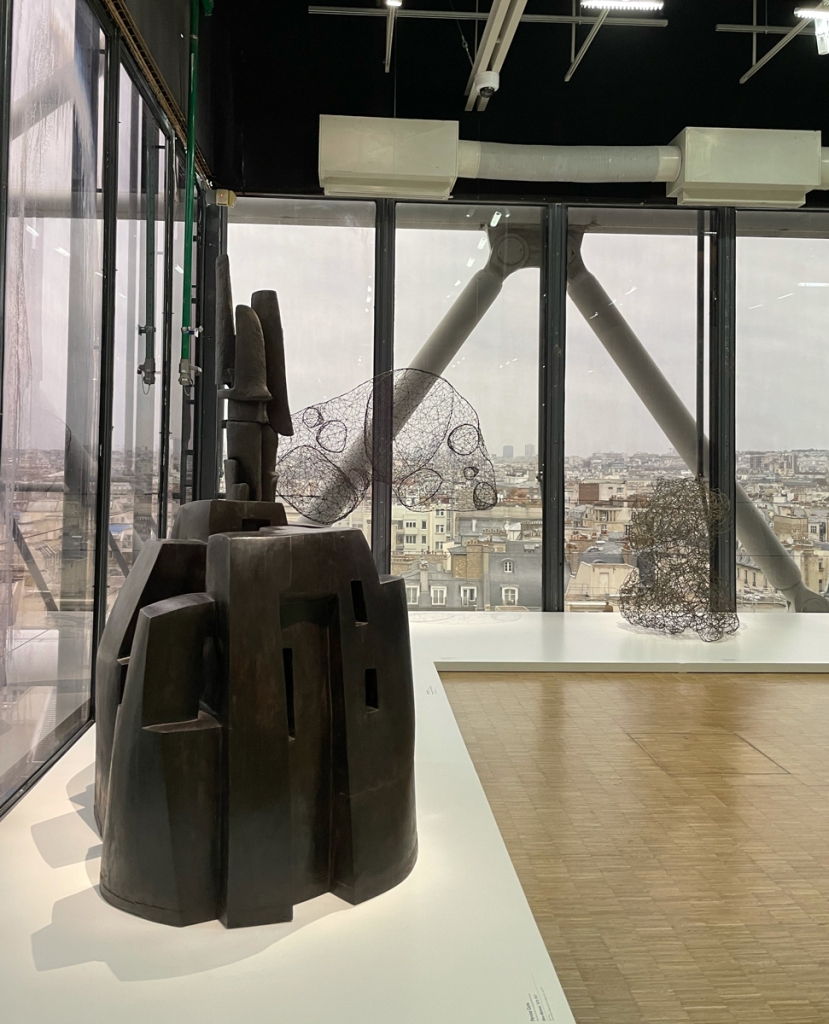
In 2017 she published a monograph on the occasion of her retrospective “Parvine Curie, Sculptures & Tangkas” presented at the CAMPREDON ART Center in L’Isle ‑ sur ‑ Sorgue (E. Maison de l’Europe) and the following year she participates in the exhibition Les Pionnières – In the workshops of women artists of the 20th century at the Galerie Pierre-Alain Challier and publishes a Monograph at Somogy Editions d’Art with the Galerie Martel Greiner. In 2021, she is also in the spotlight at the Center Georges Pompidou (Paris) in the exhibition They make abstraction.
The Sheltered Child by Parvine Curie
Discover in the video the artist Parvine Curie and the message of this work.
This artist offers you
-
1200,00€
PERSONNAGE CADAC White• Prestigious collectionParvine Curie
Add to WishlistBuy nowAdd to Wishlist -
1200,00€
PERSONNAGE CADAC Black• Prestigious collectionParvine Curie
Add to WishlistBuy nowAdd to Wishlist

